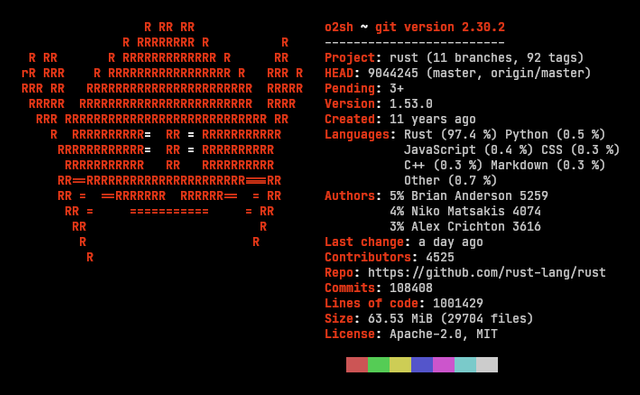Rust programming
Rust is a modern systems programming language designed for performance, safety, and concurrency. It was created by Mozilla and first released in 2010. Rust's key features include:
Memory Safety without a Garbage Collector: Rust ensures memory safety by using a strict ownership system. This system eliminates common bugs like null pointer dereferencing and data races, which are prevalent in languages like C and C++.
Concurrency: Rust has strong support for concurrent programming, making it easier to write safe, parallel code.
Performance: Like C and C++, Rust is a compiled language, and it focuses on low-level control over hardware, allowing developers to write highly efficient code.
Ownership and Borrowing System: Rust's ownership model enforces rules at compile time to ensure that references to data are valid, preventing data races and making multi-threading safer.
Rich Type System: Rust has a strong type system, helping catch errors at compile time.
Community and Ecosystem: Rust has a growing ecosystem and is used in many areas, from web development (through WebAssembly) to embedded systems and operating systems.
Rust is known for its safety and speed, making it a good choice for performance-critical applications, such as systems programming, web servers, and game development.
